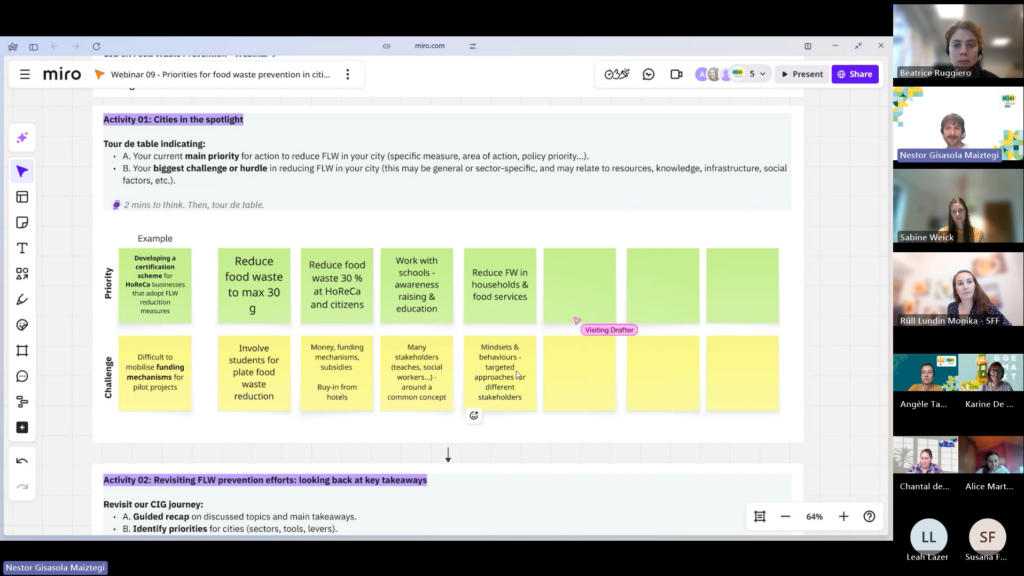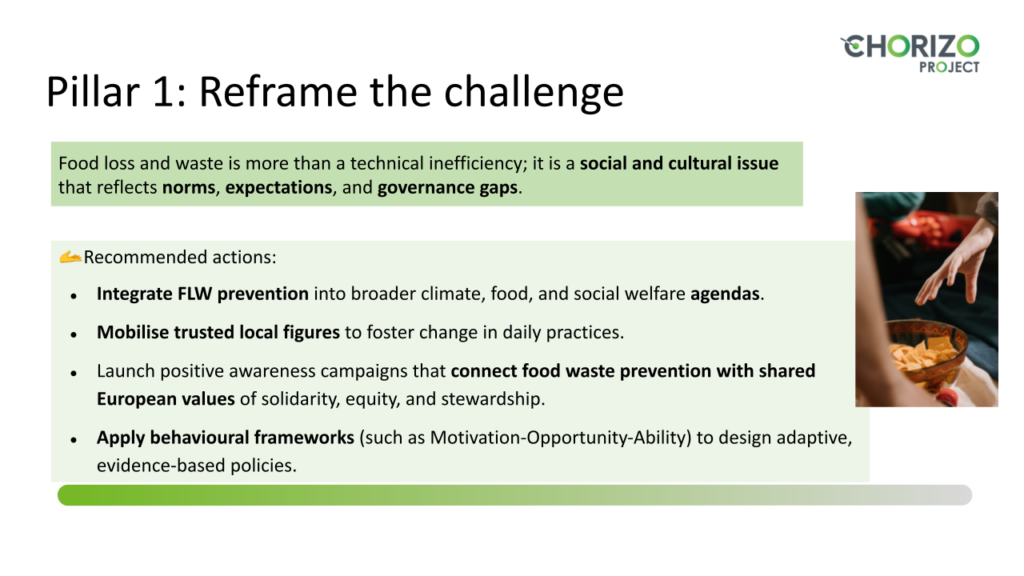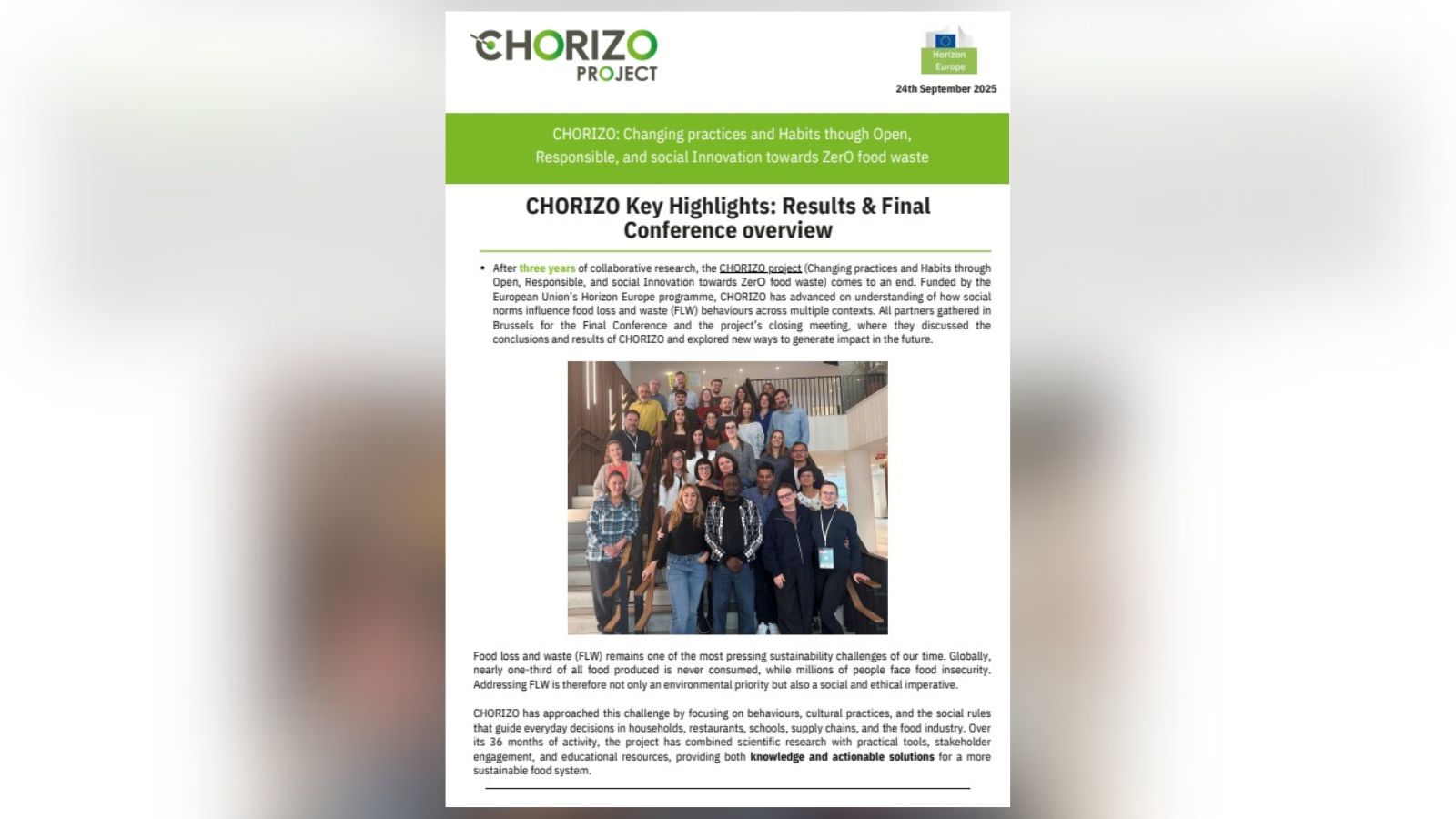Looking back on a two-and-a-half-year journey
On 9 September 2025, city practitioners from across Europe met for the ninth and final webinar of the City Interest Group (CIG) on food waste prevention, hosted by ICLEI Europe within the CHORIZO project. This gathering closed two and a half years of steady exchange, bringing to an end a unique space where cities learned from one another about cutting food waste at every step of the urban food chain.
The group looked back at the wide range of themes covered in the previous eight webinars. They revisited cross-cutting enablers like funding, data collection and governance, explored sector-specific challenges in schools, hospitality and redistribution, and reflected on the powerful role of social norms and everyday behaviours. These conversations revealed how hard it can be to collect reliable data, join up policies across different levels of government, and inspire lasting changes in how households, schools and businesses handle food. The session wrapped up with a shared discussion of the CHORIZO project’s policy brief, which pulls together the main lessons from the entire CIG journey and highlights the central role of cities in Europe’s fight against food waste.
Shared priorities for the road ahead
From these reflections, a clear picture of what matters most for the future came into view. Participants stressed that better data and regular monitoring are essential for planning and proving what works. They pointed to the need for policies at local, regional, national and EU levels to fit together, so that cities are not left to work in isolation. Dedicated funding will be key to help successful local projects grow while staying close to their communities, and stronger cooperation between public authorities and private businesses can unlock new ideas and resources. Schools stood out as important places to shape habits early, but everyone agreed that changing behaviours around food still needs steady effort and creativity.
With these shared priorities, the City Interest Group ended its journey with both gratitude and determination. Participants celebrated the connections built and the insights gained, and committed to carry this momentum forward so that cities across Europe can keep reducing food waste in the years ahead.






